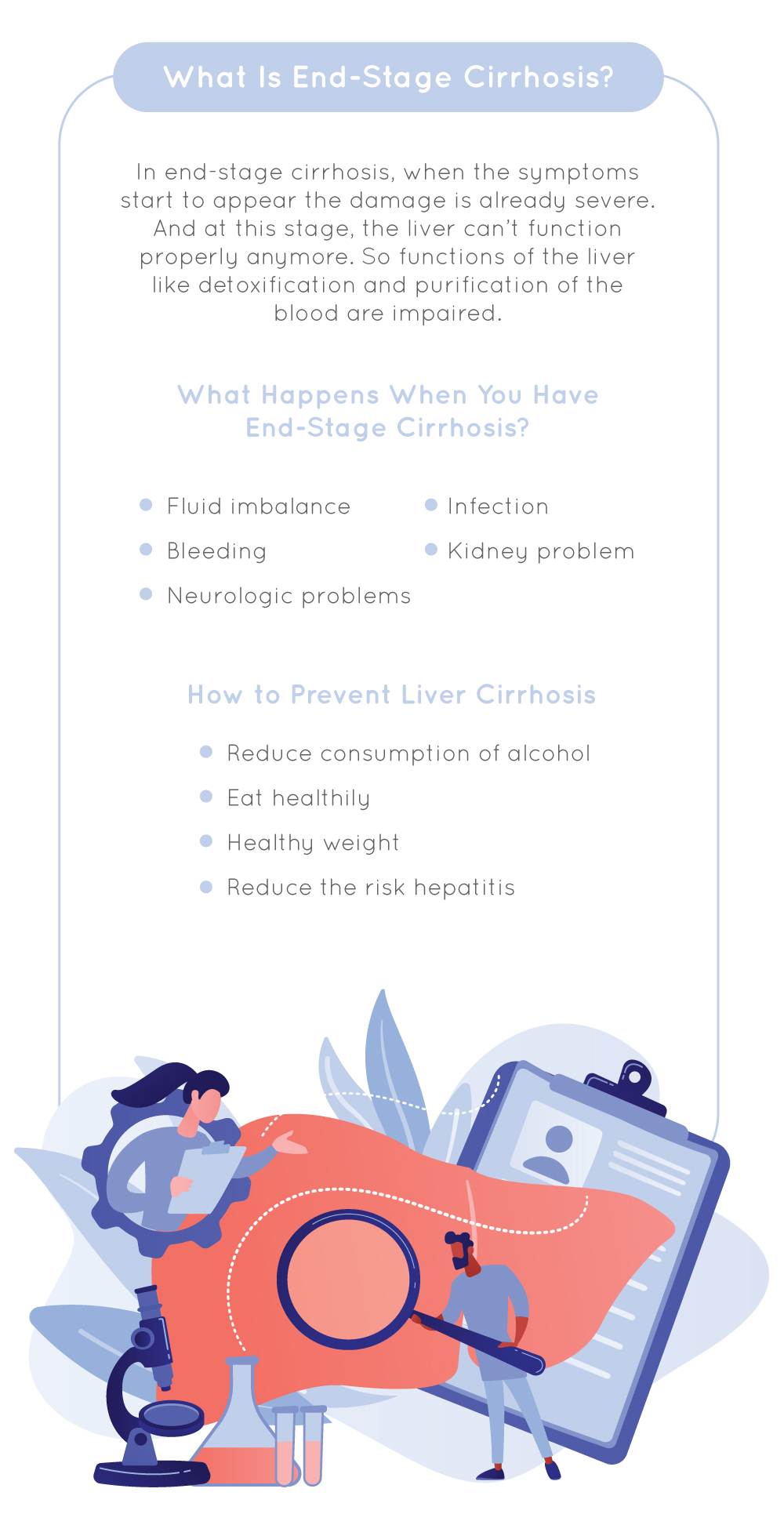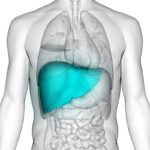So we all know that there are so many diseases on planet earth. And many of the diseases are diseases of organs in the body. One of the organs greatly affected is the liver. Liver disease is one of the most common diseases we have around. Under liver disease, there are many categories and types. And one which we will be looking at today is end-stage cirrhosis. Cirrhosis is a condition wherein there is scarring of the liver. And this can be caused by a wide variety of conditions. Such as chronic alcoholism as well as hepatitis.
One interesting thing about the liver is that when it is injured it tries to repair itself. The process of repairing leads to the formation of scar tissue. When a person has cirrhosis there is an unending cycle of scarring. And when this happens it becomes a whole lot difficult for the liver to function as it should. That’s why end-stage cirrhosis is known to be severe. The thing though is that if it’s diagnosed early then you can expect that further damage to the liver would be hindered. So what exactly happens when a person has end-stage cirrhosis? Well, you’ll find out here as we go on.
What Happens When You Have End-Stage Cirrhosis?
As mentioned before, cirrhosis is a condition that affects the liver. This condition causes permanent scarring in the liver. Certain factors can contribute to cirrhosis. And some of them are viral infections, alcohol, and medications. In end-stage cirrhosis, when the symptoms start to appear the damage is already severe. And at this stage, the liver can’t function properly anymore. So functions of the liver like detoxification and purification of the blood are impaired.
Let’s take a look at some of the major things that happen when a person has end-stage cirrhosis.
Fluid imbalance
Fluid accumulation also known as ascites happens to be one of the signs of end-stage cirrhosis. The fluid is accumulated in the abdomen. And it becomes quite uncomfortable. It could even lead to difficulty in breathing. The seeping of fluid into the abdomen is a result of increased pressure in blood vessels. And of course, the blood vessels are blood vessels connecting to the liver and the portal vein.
Also, the liver is not able to produce albumin. And albumin is a protein that helps prevent the leaking of fluid from the blood vessels. Another thing that might happen is the accumulation of fluid in the feet and leg. This is known as edema. This makes walking a bit difficult.
Bleeding
So in end-stage cirrhosis, there is a problem with the movement of blood through the liver. And that’s obviously because of the scarring of the liver. When this happens the veins in other organs such as the esophagus and stomach start to enlarge. When this happens the vessels start to rupture and bleeding happens.
Also, the liver isn’t able to produce clotting factors anymore. And because of that, there is an increased risk of bleeding. This is the reason why black stools and vomiting blood is a common symptom in people with end-stage cirrhosis.
Neurologic problems
One of the functions of the liver that is affected is detoxification. And when this happens it causes the accumulation of harmful chemicals such as ammonia. They tend to accumulate in the brain and the blood. And this could lead to certain conditions such as hepatic encephalopathy and mental changes. Also, trouble concentrating and confusion appear as early symptoms. In the end, encephalopathy could lead to coma and death.
Infection
Ascites is known to increase the risk of having other life-threatening infections. One of the conditions is spontaneous bacterial peritonitis. And this leads to the inflammation of the lining of the abdomen. It presents with symptoms such as chills, fever, and vomiting.
Kidney problem
Portal hypertension and SBP are known to lead to kidney problems. There is decreased delivery of blood to the kidneys. And this, in the end, leads to kidney failure. The symptoms that come with this are decreased the production of the kidney, dark-colored urine, nausea, confusion, and vomiting.
How to Prevent Liver Cirrhosis
So there are certain things you can do to reduce the risk of having cirrhosis. Let’s take a look at some of them.
- Reduce consumption of alcohol: Alcohol consumption is known to be one of the causes of cirrhosis. So if you reduce your consumption or even quite completely, then you can be sure of reduced risk.
- Eat healthily: Make sure to opt for plant-based foods. Such as fruits and vegetables. Reduce your consumption of fatty foods. And increase consumption of whole grains and also include some lean protein sources.
- Healthy weight: When you have an excess amount of fat in the body it can destroy your liver. There are many ways you can maintain a healthy weight. You can talk to your doctor or dietitian about steps to take to help you lose some pounds.
- Reduce the risk of hepatitis: One of the ways of reducing the risk of having hepatitis is to avoid the sharing of needles. Also, don’t have unprotected sex. All these would reduce the risk of having either hepatitis B and C. You can also have a chat with your doctor about some of the vaccinations you can opt for.
Prognosis and Treatment
When you start experiencing symptoms that come with end-stage cirrhosis the chances of living for 5 years are really low. There are immediate treatment methods that can help manage the symptoms. And this would also help reduce the chances of having any other complications. At the advanced stage of cirrhosis, most people opt for a liver transplant. That’s the best treatment option for people with end-stage cirrhosis.
When it comes to end-stage cirrhosis the symptoms can be quite severe. That’s why you must take note of any changes happening in your body. And also, seek medical consultation when you start noticing the changes. When it is diagnosed early, there is still much that can be done. But when found out late there is little that can be done. That’s a given with its name, end-stage cirrhosis.
























